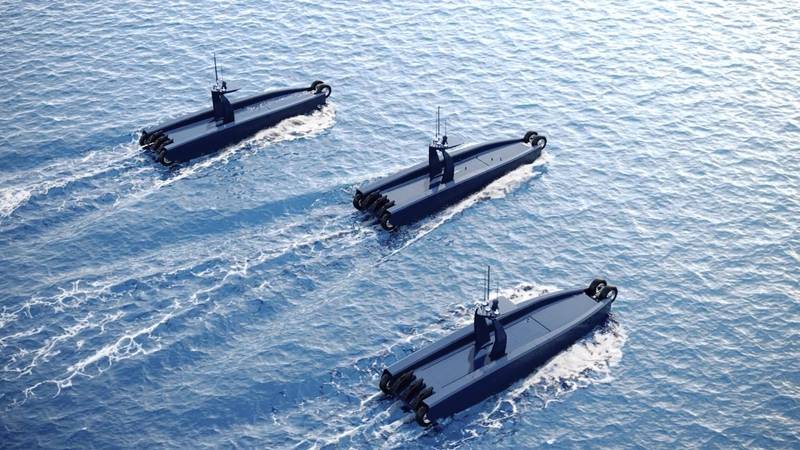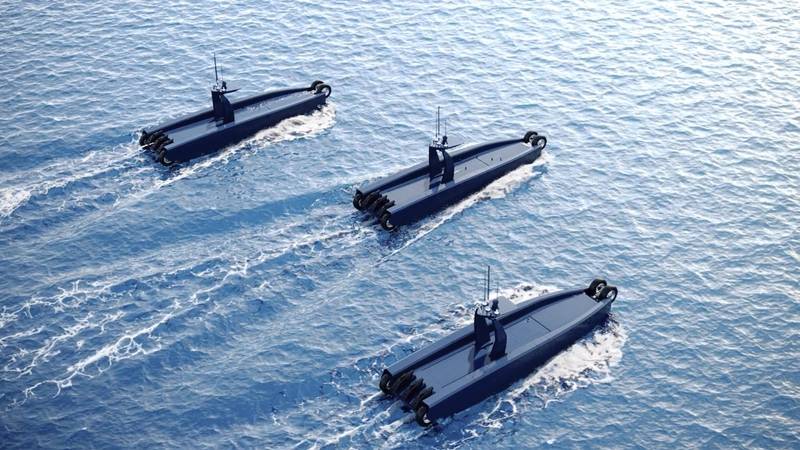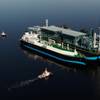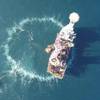Metal Shark Debuts Prowler Autonomous Vessel and Frenzy Micro-USV
Louisiana-based boat builder Metal Shark has unveiled Prowler, its new autonomous, amphibious, and semi-submersible military craft engineered to meet the current and near future warfighting requirements of the U.S. military and its allies. The company is also debuting Frenzy, a high-performance, low-cost, amphibious micro-USV (uncrewed surface vehicle) with a payload carrying capacity of up to 14 pounds.
“Prowler represents the sum total of everything we’ve learned while building 400-plus autonomous and remote operated vessels for our military customers over the past decade,” said Metal Shark CEO Chris Allard. “Every aspect of Prowler’s intended operation draws from proven technology. Prowler delivers massive increases in lethality and versatility, merging multiple capabilities into a compact, flexible, lower-cost platform ready for volume production.”
Fully amphibious and capable of autonomous or remote operation on land or at sea, Prowler offers simplified launch and recovery compared to traditional vessels. Prowler is capable of self-launch and self-recovery at boat ramps, without a prime mover or trailer, or from the well deck of an amphibious ship, with no need for cradles or dollies. Prowler’s low-speed crawl enables autonomous or remote operation on land, allowing vessels to be staged and maneuvered with minimal effort.
Prowler operates on land via a proprietary electric-drive system developed by Metal Shark, which uses low-pressure, high-traction tires mated to dedicated motors for propulsion and steering. Hydraulic rams raise and lower front and rear wheels for operation on land or at sea. Rear wheels are equipped with OTR-certified tires and marine brakes, and Prowler features DOT-compliant lighting. This allows Prowler to be transported over the road behind a conventional prime mover with no trailer, greatly simplifying logistics for operators.
Propelled by a 300-horsepower Volvo Penta D6 Aquamatic inboard diesel engine and stern drive, the 30-foot, welded-aluminum Prowler operates as a typical surface vessel while underway, with a deep-vee planing hull delivering a 35-knot sprint speed and 500 nautical mile range.
Designed for extended loitering in a semi-submerged state, Prowler’s large integrated ballast tanks flood when the vessel is static. In loitering mode, Prowler’s decks are near the waterline, with only the vessel’s arch-style communications mast visible above the water. Semi-submersion reduces Prowler’s operational profile while also improving stability for sensors, surveillance and weapons systems.
Prowler’s mast carries an array of communications equipment and a situational awareness ensemble for autonomous or remote operation, and can be equipped with port and starboard launch tubes for the deployment of loitering smart drones or other weapons. The mast also serves as the air intake for Prowler’s diesel engine. A lithium-ion battery or optional generator power pack supports station keeping, surveillance, guidance, and communications systems during extended loitering periods of up to a week.
The lift from Prowler’s planing hull design allows the vessel to quickly climb to the surface from its submerged state to resume normal operation once the surveillance mission concludes.
Prowler is equipped with a computer networked system able to support a multitude of UMAA-compliant command and control, autonomy, targeting, and AI software packages. Prowler’s system architecture provides the forward flexibility to accommodate third party software and/or hardware upgrades to support collaborative intercept capability or other technologies as they may be required.
Prowler’s computer system, along with propulsion, mechanical and electrical systems are contained within a single removable module to allow for expedited onsite servicing, repair, upgrade or replacement with no need to transport the vessel.
Prowler can simultaneously carry multiple payloads, with 1,000 lbs. of total payload carrying capacity. In addition to the aforementioned smart loitering drones, Prowler can carry up to twelve Frenzy amphibious micro USVs, which are carried on deck and self-launched on their own wheels via Prowler’s stern ramp. Designed and built by Metal Shark, the Frenzy features electric waterjet propulsion, carries a payload of up to 14 pounds, and, like Prowler, can loiter in a semi-submerged state.
“I’ve been toying with the notion of this little gizmo ever since we began designing the Long Range Unmanned Surface Vessel (LRUSV) for the Marine Corps,” said Allard, speaking of the Frenzy micro USV. “There’s a huge need for attritable USVs in a compact form factor, and very few sources. Frenzy will serve this demand, and putting Frenzy onboard Prowler makes perfect sense. Pairing an over-the-horizon capable USV with micro-USVs delivers a one-two punch capability, keeping the key asset safe while allowing the attritable drones to do their job, all while being watched from the sky.”
Prowler and Frenzy will make their public debut April 8-10 at Sea-Air-Space 2024 in National Harbor, Md., before returning to Metal Shark’s Louisiana facilities for further testing and development.
“We challenged the men and women of Metal Shark to dream big and to think outside the box to bring Prowler and Frenzy to life in an accelerated timeframe, and I am blown away by their talent, energy, and dedication to this project,” Allard said. “I look forward to showing off the ingenuity and hard work of our people next week at Sea-Air-Space.”
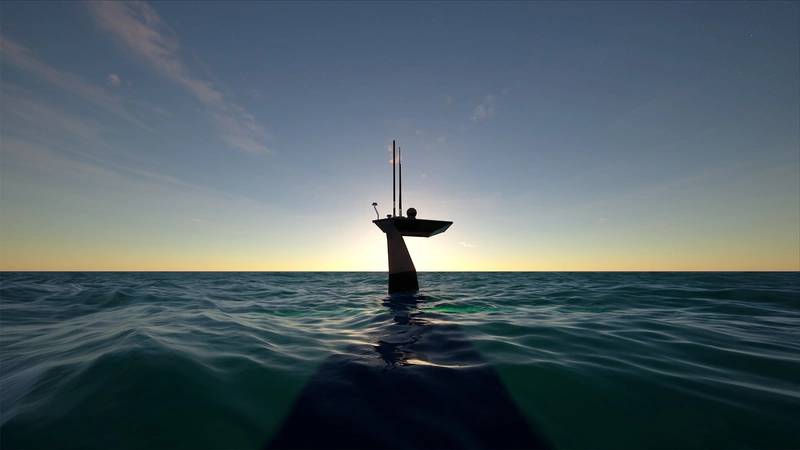 (Image: Metal Shark)
(Image: Metal Shark)





